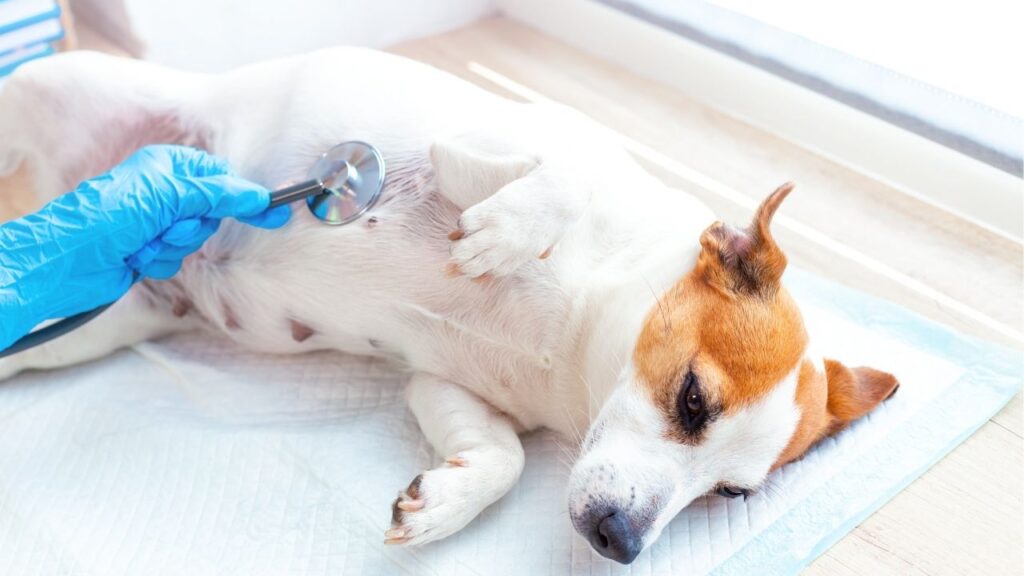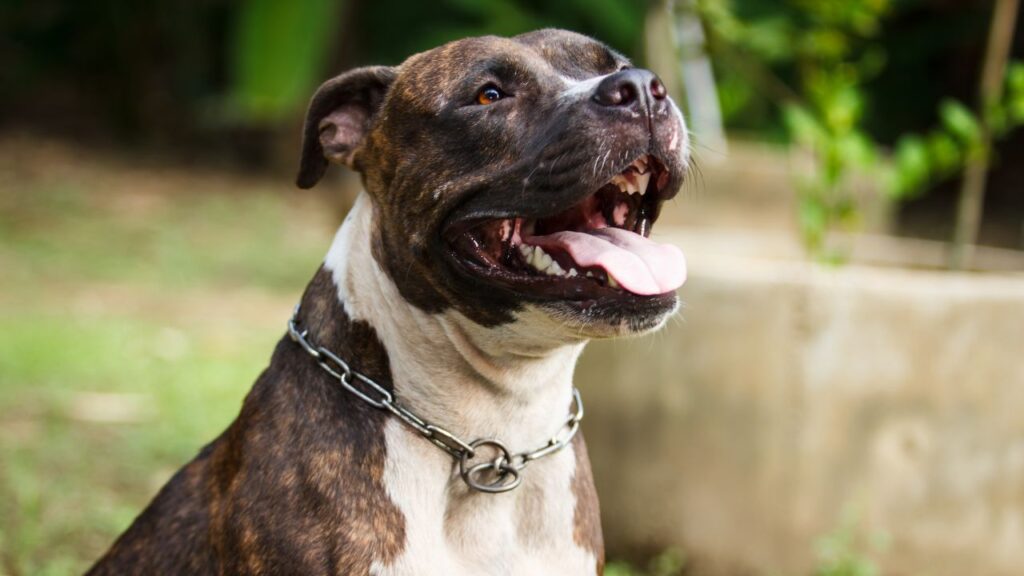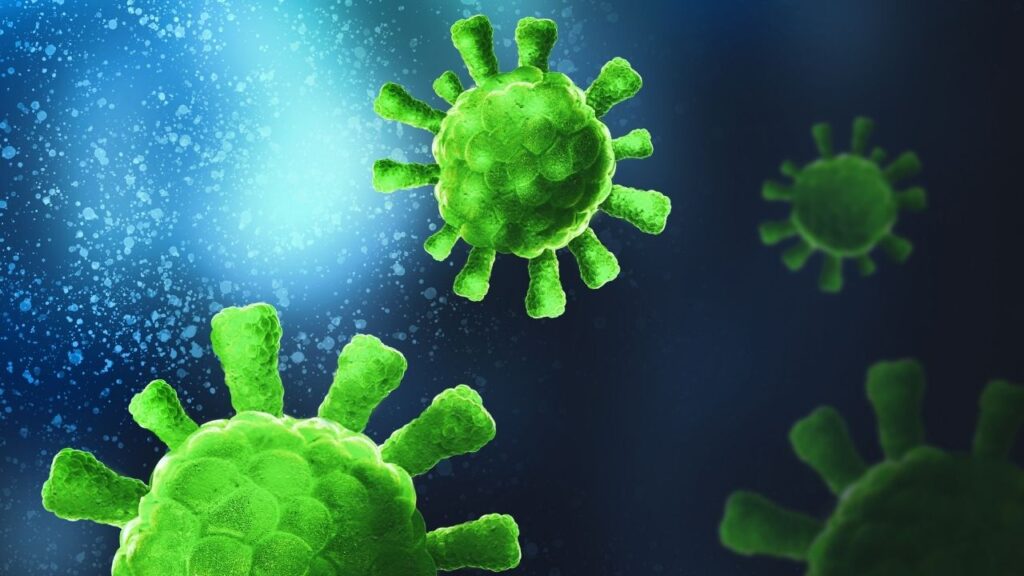Adiponectin is secreted by fat cells and has many potential anti-cancer benefits. Despite a greater number of fat cells in overweight dogs, they produce lower amounts of adiponectin than their leaner counterparts. Dogs with too much fat are unable to synthesize adiponectin correctly. They are unable to reap any benefits it may have to offer.
Key Takeaways
- Adiponectin and leptin are sometimes confused. Both are adipokines, but they serve different roles.
- Adiponectin senses insulin and increases the uptake of glucose, which can assist in weight loss.
- Adiponectin is secreted by fat cells in white adipose tissue when it senses the presence of glucose.
Body Fat Secretes Adiponectin
Adiponectin is a protein secreted by fat cells that may reduce cancer risk. (More on that below.)
But having more fat does not mean more adiponectin. Despite a greater number of fat cells in overweight dogs, they actually produce lower amounts of adiponectin than their leaner counterparts.
Dogs with too much fat are unable to synthesize adiponectin correctly. They are unable to reap any benefits it may have to offer.
Outcomes and results pertaining to adiponectin and dog cancer are mixed. This leaves a number of mysteries surrounding the protein’s role in body fat, obesity, and cancer that have yet to be solved.
Let’s look at adiponectin and its role in the body, in hopes we can better understand how obesity affects dogs in terms of cancer risk.
The Endocrine System is a Complex Network of Chemical Messengers
Your dog’s endocrine system releases chemical messengers that travel to different parts of the body. These chemical messengers are known as endocrine factors (also known as hormones). They are grouped based on the organ or cell type that emits them.
Adipokines are a group of endocrine factors secreted by adipocytes, or fat cells.1,2
One adipokine that’s gaining increasing levels of attention is adiponectin.
Adiponectin – What’s in a Name?
There are several ways adiponectin appears in the literature. Sometimes the protein name appears in the literature, and other times it is referred to by the gene that codes for it.
Longer names for adiponectin include:3,4,5
- “adipocyte complement-related protein of 30kDa”
- “adipose most abundant gene transcript 1 protein”
- “C1Q and collagen domain containing”
There are also shortened symbol names for adiponectin, such as Acrp30, apM1, GBP28, and ADIPOQ.3,4 These names can vary based on the species of animal.
For dogs, ADIPOQ is the most commonly used and approved symbol.6
Just to make your head spin a little bit more, gene names are italicized, and protein names are not. In the case of adiponectin, which has the same gene name and protein name, if it is italicized, it’s probably referring to the gene name … unless it’s in a species where the gene name isn’t italicized!
The bottom line is that if you are searching for adiponectin in the literature, it’s a good idea to check all of the names above, because they all essentially point to the same substance.
What Secretes Adiponectin
In humans, adiponectin can be secreted by salivary glands, bone cells, and cardiomyocytes (the cells responsible for contracting the heart).7
In dogs, only adipose tissue (fat) secretes adiponectin.4
Fat Tissue and Adiponectin
Clusters of adipocytes, along with collagen fibers, blood vessels, fibroblasts, and immune cells, come together to form the loose connective tissue called fat.1
Other cells, like white blood cells, stem cells, and lymphocytes may also be present in much smaller amounts.1
Adipose tissue was once thought to primarily store energy but is now recognized as a complex endocrine organ.4 Other endocrine organs include the pancreas, hypothalamus, thyroid, adrenal glands, etc.
If we think of fat as an organ, and not just storage, we start to understand why it might have a role in diseases like diabetes, but also cancer.
The Two Types of Adipose Tissue
There are two types of adipose tissue:4
- white adipose tissue (WAT)
- brown adipose tissue (BAT)
Adiponectin is expressed in white adipose tissue.4 It is one of the most abundant proteins found in blood plasma (the clear fluid part of blood), making up 0.01% to 0.05% of the total number of plasma proteins in humans.8
The Many Roles of Adiponectin
Adiponectin influences several different tissues in the body, including fat, the liver, skeletal muscle, bones, cardiac muscle, and the endothelium.9
- Adiponectin senses insulin in the body.
- It activates the biological pathway that increases the uptake of glucose.2,10
- It also helps inhibit fatty plaques from forming in arteries and is anti-inflammatory.2
Adiponectin also controls the excretion of TNF-α from macrophages.10 Macrophages are a type of white blood cell that play an important role in the immune system.
- TNF-α is also an adipokine.
- It regulates the growth and differentiation of many cell types and is involved in cell death.10
- It appears to play key roles in regulating the cell cycle and apoptosis, or regulated cell death.9,11,12
The Adiponectin Paradox: More Fat = Less Adiponectin
You may be thinking, “If adiponectin is expressed by fat cells in fat tissue, then more fat tissue means more adiponectin and the benefits that come with it.”
However, this is not the case.
Instead, when the body has too much fat, it secretes less adiponectin.13
Adiponectin comes in three different isoforms, or variations…14
- low molecular weight adiponectin (LMW)
- medium molecular weight adiponectin (MMW)
- high molecular weight adiponectin (HMW).
HMW adiponectin is the most biologically active of the three.14 The amount of HMW depends on the species. For example, dogs have more HMW than humans do.15
- Obesity causes the formation of these isoforms to be disrupted, ultimately resulting in less adiponectin overall.14
- In addition, adiponectin can only be released when fat cells are being actively burned, which happens at a lower rate in overweight bodies.13
- Obesity has been strongly linked to canine cancer.17
Given the role of adiponectin and its response to obesity, it’s likely the dominant biological reason that obesity is connected to cancer development.18
Does a Lack of Adiponectin Always Cause Cancer?
As is true for many topics in cancer, studies surrounding adiponectin and cancer specifically in dogs are lacking.
However, the genetic sequence of adiponectin in humans shares 90% similarity with adiponectin in dogs.15 This makes it plausible to apply studies on adiponectin and cancer in humans to dogs, because processes and findings may be generally similar.15
There is a link between adiponectin levels and cancer in humans, but results are mixed.
Studies on the Role of Adiponectin in Preventing Cancer
Several studies support the notion that adiponectin helps prevent cancer.
- One study found an inverse relationship between adiponectin levels measured in blood and the risk of colorectal cancer in men.19 Men with more fat in the study also had less adiponectin in their system.19
- Another study examined 102 patients with breast cancer and compared them to 100 healthy patients. Both groups had their adiponectin levels tested. This measurement was linked to other clinicopathological characteristics of breast cancer.20 The results revealed that women with low adiponectin levels had a significantly increased risk of breast cancer in comparison to their higher registering counterparts regardless of whether they were pre- or post-menopausal.
- A similar study compared 84 women newly diagnosed with endometrial cancer with 84 women who were cancer free. They found the same inverse relationship as mentioned above, but only when women under 65 were considered separately from women over 65.21 Patients aged 65 and older had no connection between adiponectin levels and risk of endometrial cancer.
Studies on the Role of Adiponectin in Slowing Down Cancer
In addition to helping prevent cancer, adiponectin may help slow down its progression.
- A study examining liver cancer cells in the laboratory found that adiponectin inhibited their growth.12 A follow up study that induced liver tumors in mice found similar results.12
- One mechanism by which adiponectin may slow down tumor growth is through the activation of PP2A. PP2A is a gene that suppresses tumorigenesis. Adiponectin has been shown to increase its expression on breast cancer cells.22
- In a real-life example involving 102 human subjects, patients diagnosed with breast cancer who had low levels of adiponectin were more likely to have larger tumors than patients who registered higher levels of adiponectin.20
Alternatively, research has also shown that adiponectin may promote tumor growth. Researchers that exposed colon cancer cells to adiponectin found that it caused them to proliferate and stimulated proteins that were part of a proinflammatory immune response.23
A second study involving chondrosarcoma, a type of cancer that forms in bone cartilage, found that adiponectin increased the migration of cancer cells in the body. This caused it to metastasize faster.24
As is often the case with cancer research, more needs to be done to understand adiponectin’s role in cancer progression.
Why All the Contradictions?
The relationship between adiponectin and cancer is likely much more complicated than we realize. Here are three examples of contradictory information we have about adiponectin.
- Adiponectin may not act on all types of cancer cells. A study surrounding childhood cancer found that adiponectin was inversely associated with myeloblastic leukemia but had no relationship with acute lymphoblastic leukemia.25 This could be because adiponectin is unable to limit the growth of lymphoid cells but can affect myeloid cells.
- The observed effects of adiponectin may also depend on the isoform. Remember that adiponectin comes in three varieties – low, medium, and high molecular weight (LMW, MMW, and HMW). These three aren’t created equal in terms of their biological ability. In a study that tested the effects of adiponectin on prostate cancer cells, only the HMW adiponectin was able to inhibit cell growth and proliferation.26
- Adiponectin may need to be at certain concentrations for certain periods before it exhibits anticancer properties. There may be a “sweet spot” in which maximum effectiveness is reached and then steeply drops off. For example, one study testing the effect of adiponectin on breast cancer cells found a reduction in cell proliferation when incubated for two days at 5 ug/ml adiponectin.27 Another study found no effect of adiponectin on breast cancer cells when done at 10ug/ml for six days.28
The Role of Adiponectin in Cancer Treatment
So, what does this all mean for your dog with cancer? Even if adiponectin doesn’t directly benefit your dog and their cancer risk or metastasis, it may indirectly help with treatment.
Patients recovering from abdominal surgery who had limited levels of adiponectin in its LMW form had slower healing times in comparison to patients who had higher levels.29 This may have relevance for dogs with cancer who are receiving surgery or other treatments that may result in recovery time to heal from a wound.
Your dog being at a healthy weight, and not overweight, helps in general, and in the case of adiponectin, may help with recovery from treatments associated with cancer.
Obesity, Low Adiponectin Levels, and Cancer
Circulating adiponectin levels are determined by genetic, hormonal, inflammatory, dietary, and other factors.11 One of the strongest and best links to lower levels of adiponectin is obesity.8
A large meta-analysis helps us understand that higher levels of adiponectin in dogs is linked to lower levels of cancer, as it is in humans, despite some conflicting studies.
- In regards to changes in adiponectin in response to weight loss, a study that measured total adiponectin and HMW adiponectin in 25 dogs before and after weight loss found no difference between the two time periods.16
- A meta-analysis (mentioned above) of 20 scientific studies that compared 366 obese dogs and 349 dogs at a healthy weight found that adiponectin was lower in obese dogs than their leaner counterparts.7 In addition, measurements of adiponectin in dogs who underwent weight loss programs increased in comparison to their pre-weight loss levels.
- The conflicting evidence is here: Investigations in two studies comparing adiponectin in overweight and obese dogs versus leaner dogs found that neither the total amount of adiponectin nor the amount of HMW adiponectin varied between the groups.15
Despite the conflicting evidence, the metanalysis of 20 total studies offers the most wholistic insight into obesity and adiponectin levels in dogs. This suggests that there is an inverse relationship between obesity and adiponectin levels that mimics that observed in humans.17
Regardless of adiponectin levels, obesity is damaging to your dog. Obese dogs suffer from chronic inflammation,16 which is linked to cancer.17
A human study is worth mentioning: in a study that followed obese women who received bariatric surgery, those that lost weight were significantly less likely to develop cancer when compared to women who remained obese.30
Risk Factors for Obesity in Dogs
The underlying causes for obesity include recent changes in environmental factors (food availability, activity level) and genetics.4 These interactions are complex and likely do not operate independently of one another.4
Breed and Genetics as a Risk Factor for Obesity in Dogs
Breed as a risk factor to obesity is not well understood. Data suggests an undeniable link between the two.
- Clinical records of 22,333 dogs identified 1,590 of them as overweight.31 Dog breeds with significantly increased odds of being overweight included the pug, beagle, golden retriever, and English springer spaniel. Dogs with significantly decreased odds of being overweight included the shih-tzu and German shepherd.
- Anecdotal reports from veterinarians reflect similar associations of being overweight with particular breeds. One vet described golden retrievers, Labrador retrievers, and Newfoundlands as commonly obese while whippets, boxers and setters are commonly lean.32
Genetics is likely the key driver in these observations.
Here’s an example:
- Dogs initially bred for colder climates required more fat.
- As they were bred, the “thrifty gene”, a gene that helps to increase fat storage, was selected for.
- Those breeds now still exist, even though they don’t need those reserves.
- These breeds are now more likely to be overweight because they have that gene, but don’t ever use up the fat reserves its meant to hold onto.32
Age, Fertility Status, and Sex as a Risk Factor for Obesity
Other risk factors for obesity in dogs are age and fertility status.
- Dogs that are older may have arthritis or other conditions that slow them down and limit their activity.32
- Dogs that are neutered require 10% to 20% fewer calories than intact male dogs.32
- Weight gain can result if their diets are not adusted.32
Human females were found to have higher total levels of adiponectin, and specifically higher levels of HMW adiponectin, in their blood plasma than men.8,33 If the same translates to dogs, then females may be at less risk for cancer development based on the role of adiponectin than males.
Age as a Risk Factor for Low Adiponectin levels
Concentrations of adiponectin increased with age in a study involving human subjects.34 Older dogs may be able to benefit from increased levels of adiponectin if the same is true for canines.
In study of 1,580 overweight dogs, researchers found that dogs were most likely to be overweight between the ages of 6 to 9.31 Given the role that body fat and weight likely play in adiponectin production, it may still outweigh (no pun intended) the benefits of age. Keeping your dog at a healthy weight into their senior years, when cancer risk goes up, is a good idea.
Reproductive and Fertility Status as a Risk Factor for Low Adiponectin levels
Reproductive and fertility status of your dog may be important to keep in mind when assessing the risk for low levels of adiponectin, especially for females.
In a study on endometrial cancer in women, there was no inverse relationship found between risk of endometrial cancer and adiponectin levels in women over 65 (post-menopausal), but a very strong relationship in women under 65 (pre-menopausal).21 Younger women were more likely to have lower levels of adiponectin associated with higher cancer risk.
No significant difference in adiponectin were observed in intact versus neutered dogs.15
Chronic Kidney Disease as a Risk Factor for Low Adiponectin levels
Dogs with chronic kidney disease (CKD) may have lower levels of adiponectin depending on the disease’s impact on the level of proteins in their urine.
Dogs with CKD often have proteinuria (high levels of protein in the urine). This may be reflective of renal endothelial dysfunction and can result in chronic inflammatory responses.
In one study, dogs with CKD who were proteinuric had significantly lower levels of adiponectin than those with CKD who were not-proteinuric.35
The Verdict on Adiponectin and Weight
It’s difficult to definitively state that adiponectin is consistently lower in overweight dogs. Studies are conflicting.
This may suggest that adiponectin in dogs is more complicated or serves a different purpose than it does in humans. Factors such as experimental conditions, study design, breeds examined, or populations studied may drive differences in findings.16
In the end, we may not yet be totally certain that overweight dogs have lower levels of adiponectin and are therefore at higher risk for developing cancer, but it’s reasonable to say that there may be a connection (as there is in humans). Keeping your dog at a healthy weight is a good idea in general for good health.
How to Reduce Risk of Obesity and Lower Adiponectin Levels
Adiponectin wasn’t described until 1995. We are still learning about it.9
Nonetheless, there are some actionable steps you may be able to take to support your dog.
- Keep your dog at a healthy weight. Too much weight on your dog will lower their levels of adiponectin, possibly putting them at risk for cancer. Not to mention that there are many other co-morbidities associated with obesity that can be dangerous. These include type-II diabetes, fatty liver disease, cardiovascular disease, and insulin resistance.3
- It can be tempting to comfort and reward your dog with food. You may also be concerned about your dog losing weight because of their cancer or cancer treatments and subsequently over-compensate. Ask your veterinarian for help with calorie counts for your dog’s specific condition and illness.13
- In a study on 22,333 dogs, 1,580 (7%) of them registered as overweight.31 If your dog has been getting a bit too much nutritional love, you’re not alone. Talk to your vet if you are having trouble balancing out their nutrition.13
- Keep your dog on a regular exercise schedule. Fat cells need to be burned in order for adiponectin to be produced.13
- Only chronic rigorous exercise has consistently shown increases in adiponectin levels, and even these were small increases. Strangely, exercise in short bursts increased adiponectin levels in athletes, but decreased it in obese individuals.10
- Regardless, a regular exercise schedule will help keep weight off your dog, and leaner dogs are strongly associated with higher levels of adiponectin.
- Incorporate dietary supplements. A study that supplemented food with fish oil found an increase in adiponectin concentration in rats without any weight loss observed. Fish oil is also full of omega-3 fatty acids, which are known to have anti-cancer benefits for dogs.13
Topics
Did You Find This Helpful? Share It with Your Pack!
Use the buttons to share what you learned on social media, download a PDF, print this out, or email it to your veterinarian.






